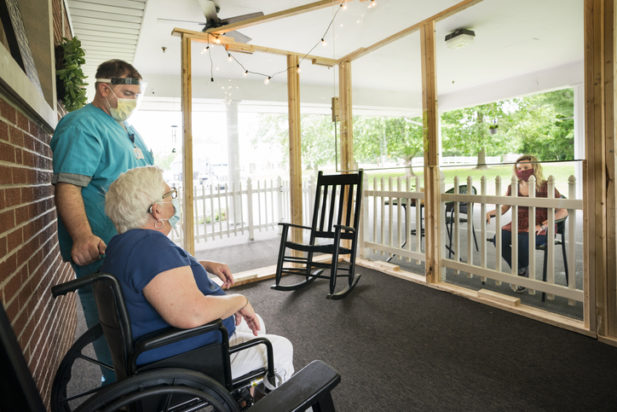COVID-19 Impact on Residents of Long-Term Care Homes

It goes without saying that the COVID-19 pandemic has changed every facet of our lives. Canadians across the country have felt its impact in one way or another. But there is one particular demographic of our population who have been devastated by the pandemic: residents of long-term care homes.
According to Public Health Ontario, the cumulative number of deaths attributed to COVID-19 in the Province as of October 28, 2020 totals 3,118. Resident deaths in Ontario long-term care homes total 1,938 as of October 28, 2020. Staff deaths associated with long-term care homes total 8.
While long-term care homes are facing unique challenges because of COVID-19, their mandate to ensure the health and safety of its residents may be more important now than ever. All Ontario long-term care homes are governed by the Long-Term Care Homes Act, 2007. This Act is designed to regulate and oversee the relationship between a resident and a long-term care home. It covers a broad range of matters such as the process of admitting residents, care plans, services to be provided, consent and decision-making process, how complaints are to be handled and a list of rights for residents.
One of the key provisions in the Long-Term Care Homes Act is that every long-term care home must provide a “safe and secure environment” for its residents. The Act and regulations outlines a Residents’ Bill of Rights, which confers privileges, choices and protections to every resident while living in a long-term care home. For example, some of these rights include: the right to be protected from abuse, the right to not be neglected by staff and the right to be properly sheltered, fed, clothed groomed and cared for.
A long-term care home’s failure to uphold and protect a resident’s rights and privileges can have dire consequences. Often times it leads to injuries, trauma, or worse. In those circumstances, the resident and their loved ones may want to consider taking legal action against the home.
Residents and families who have suffered as a result of COVID-19 related issues of negligent care may soon face an uphill legal battle. The Ontario government recently announced the proposal of new legislation called Bill 218, Supporting Ontario’s Recovery Act, 2020.
Section 2 of Bill 218 (as of October 28, 2020) reads,
2(1) No cause of action arises against any person as a direct or indirect result of an individual being or potentially being infected with or exposed to coronavirus (COVID-19) on or after March 17, 2020 as a direct or indirect result of an act or omission of the person if,
(a) at the relevant time, the person acted or made a good faith effort to act in accordance with,
(i) public health guidance relating to coronavirus (COVID-19) that applied to the person, and
(ii) any federal, provincial or municipal law relating to coronavirus (COVID-19) that applied to the person; and
(b) the act or omission of the person does not constitute gross negligence.
If the Bill is passed, it would pose significant legal challenges for residents who may have suffered as a result of COVID-19 related negligence in long-term care homes. A long-term care home may have a complete defence to a lawsuit if they are able to say that they acted in or made a “good faith effort”. The proposed Act defines “good faith effort” as an “honest effort, whether or not that effort is reasonable”. Even if a resident is able to pass this legal hurdle, they would also have to prove that the home was “grossly negligent”. This is a more difficult standard to prove than traditional negligence.
The current status of Bill 218 can be found at the following link:
ola.org/en/legislative-business/bills/parliament-42/session-1/bill-218/status.
If you or a loved one have any questions about this article or long-term care home issues, please don’t hesitate to reach out to me directly at cjung@oatleyvigmond.com.
About the Authors

For Charles, practising personal injury law allows him to serve and empower individuals to overcome some of the most challenging times of their lives. His devotion to service is what motivates him to achieve the best possible outcome for his clients.
